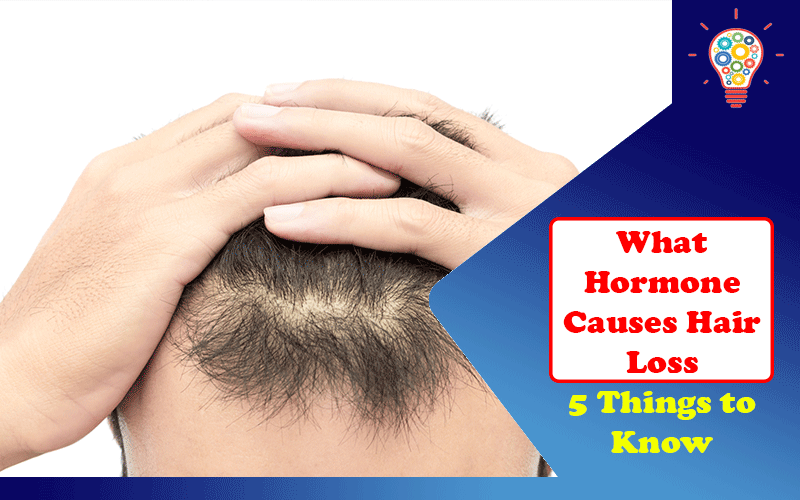Hormones affect everything from your energy levels to your skin. They’re one of the most powerful components of our body and can affect your daily moods and feelings.
But did you know that hormones can also contribute to hair loss?
Knowing what hormone causes hair loss can help you take proactive steps to prevent it from occurring. To help you learn more, these are 5 of the main hormones that contribute to hair loss.
Table of Contents
1. Testosterone
Testosterone is a naturally occurring hormone in men and women. However, hair loss in women can occur if testosterone levels are too high because it can lead to oily and thin hair.
For men, the culprit of hair loss is more likely to be testosterone that is not bound to proteins. This type of testosterone is metabolized into dihydrotestosterone (DHT) by an enzyme called 5-alpha reductase. When DHT acts on hair follicles, it causes the follicles to shorten, which leads to hair loss.
2. Estrogen
Estrogen is another important hormone to pay attention to. When estrogen levels are abnormal, it can lead to a bunch of symptoms. This includes mood swings, headaches, and period pain.
But estrogen can also affect your hair. Over time, low levels of estrogen can lead to brittle hair and hair loss.
3. Progesterone
Progesterone specifically affects women. It’s produced by the ovaries and can counterbalance testosterone in women. However, when women are not ovulating, progesterone isn’t produced at adequate levels.
Without proper progesterone in the body, testosterone levels can increase. This increases the risk of hair loss in women.
4. Thyroid
Thyroid hormones are powerful and affect every cell in the body for both men and women. If your thyroid is functioning at low levels, your entire cellular functioning will slow down. Common symptoms of slow thyroid hormonal functioning are poor digestion, fatigue, and brain fog.
Hyperthyroidism occurs when your thyroid hormone levels are too high. This can lead to hair thinning and hair loss over time. Hyperthyroidism is more common in women, but it can also occur in men.
If you experience hair loss combined with other symptoms and risk factors of hyperthyroidism, be sure to consult with your doctor.
5. Cortisol
Cortisol is your body’s main stress hormone. When you’re stressed out, you can inadvertently raise your cortisol levels. If your cortisol levels are consistently high, it can lead to hair loss in men and women.
Cortisol causes the hair follicles to shrink, which leads to hair thinning and hair loss. The best way to manage your cortisol is to keep your stress levels in check.
However, you don’t have to accept your hair loss. You can mitigate it by using this process of scalp micro pigmentation.
Read Also: What Does the Hair Growth Cycle Actually Look Like?
Now You Know What Hormone Causes Hair Loss
Knowing what hormone causes hair loss can help you understand why you’re losing your hair. If you’re taking medications that could alter your hormonal levels, you may want to be mindful of your hair.
Hormonal changes don’t automatically mean that you’ll experience hair loss, but it’s a side effect to be aware of.
If you’re concerned about potential hair loss, be sure to discuss your concerns with your doctor. They may be able to provide you with vitamins or supplements to offset any potential hair loss. It’s always better to be safe than sorry!
And if you want to learn about other topics related to your health, be sure to check out the other articles on our blog. You’ll love our other articles!

